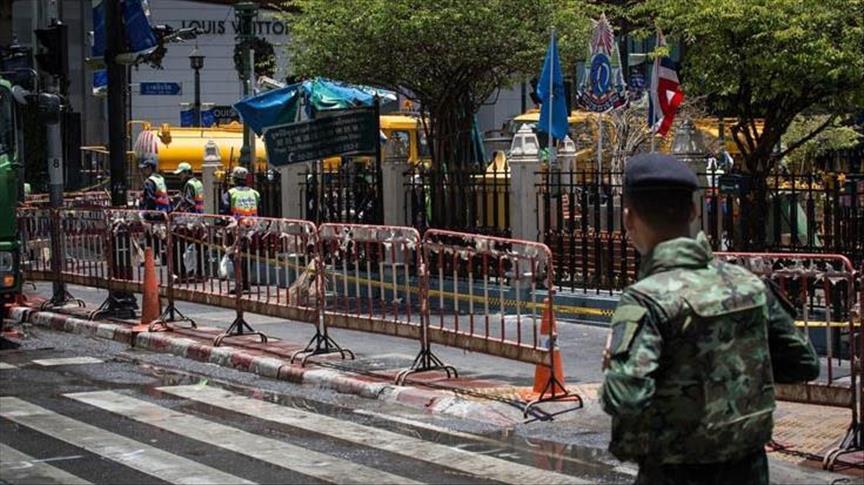Bombing, shooting rock Thailand’s south
Police believe bombing to be work of insurgents; villager injured after unidentified suspects shoot at car
 FILE PHOTO
FILE PHOTO
By Max Constant
BANGKOK
A bombing and a shooting have shaken Thailand’s majority Muslim south, local authorities confirmed Friday, a week after the military government revealed new plans to counteract a decades-long insurgency in the region.
A deputy-investigator at the Rueso district police station in Narathiwat province told Anadolu Agency that a bomb exploded Thursday while a police patrol car passed on a local road.
“The remote-controlled bomb was buried on the roadside. The car was damaged by shrapnel, but no one was injured,” Police Captain Marut Nikolsi said.
Police believe the attack to be the work of insurgents fighting the Thai central state.
Another incident Thursday evening left one person injured in Sungai Padi district in the same province.
Police Sub-Lieutenant Kittisak Iat-het, deputy investigator of Sungai Padi police station, told Anadolu Agency, “an indeterminate number of people ambushed and shot at the car of a 51-year-old villager who was driving along a local road.”
He said that the injured villager is receiving treatment at a local hospital, and the reason behind the attack has yet to be determined.
In a plan revealed last week, the junta -- which seized power in a May 2014 coup -- called for increased security and the promotion of business and social investment in rural communities in the three southernmost provinces in order to combat the influence of insurgents.
"We envision the completion of 'model villages' throughout the region to increase social security for citizens," a handout detailing the plans said.
Such villages are heavily subsidized by the government to provide jobs and security presence for locals.
They are singled out by the military for their strategic and geographical importance, along with a high risk of insurgent recruitment.
The government increases investment in such villages to act as a deterrent and also increases security personnel in the area.
Similar plans were used during the Vietnam War era, when the United States tried to stop villages from being radicalized by communists fighting the U.S.-backed government.
The southern insurgency -- active in the three southern provinces of Yala, Narathiwat and Pattani, close to Thailand's border with Malaysia -- is rooted in a century-old ethno-cultural conflict between Malay Muslims living in the region and the Thai central state where Buddhism is considered the de-facto national religion.
Armed insurgent groups were formed in the 1960s after the then-military dictatorship tried to interfere in Islamic schools, but the insurgency faded in the 1990s.
In 2004, a rejuvenated armed movement -- composed of numerous local cells of fighters loosely grouped around the National Revolutionary Front, or BRN -- emerged.
After the military seized power in May 2014, the junta continued the overthrown elected civilian government’s policy of holding peace talks with insurgent groups.
A recent report on the south by the International Crisis Group, a Brussels-based think tank, has claimed, however, that the talks have “foundered” as both sides “prefer hostilities to compromise”.
“The National Council for Peace and Order [NCPO], which seized power in the 2014 coup, professes to support dialogue to end the insurgency but avoids commitment,” the report said, referring to the ruling junta by its official name.
Anadolu Agency website contains only a portion of the news stories offered to subscribers in the AA News Broadcasting System (HAS), and in summarized form. Please contact us for subscription options.







